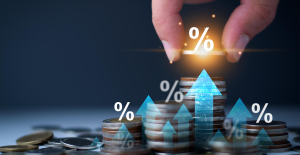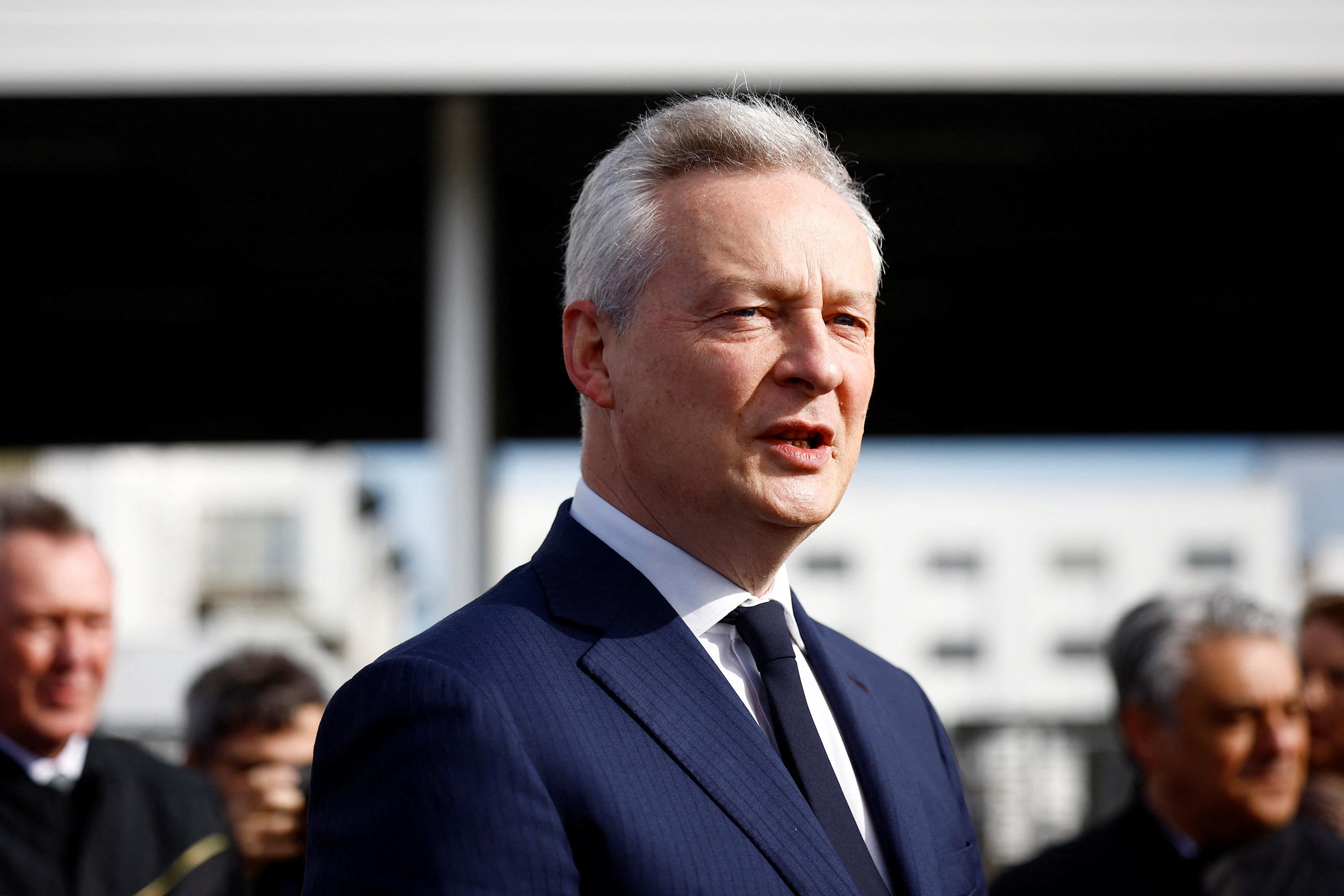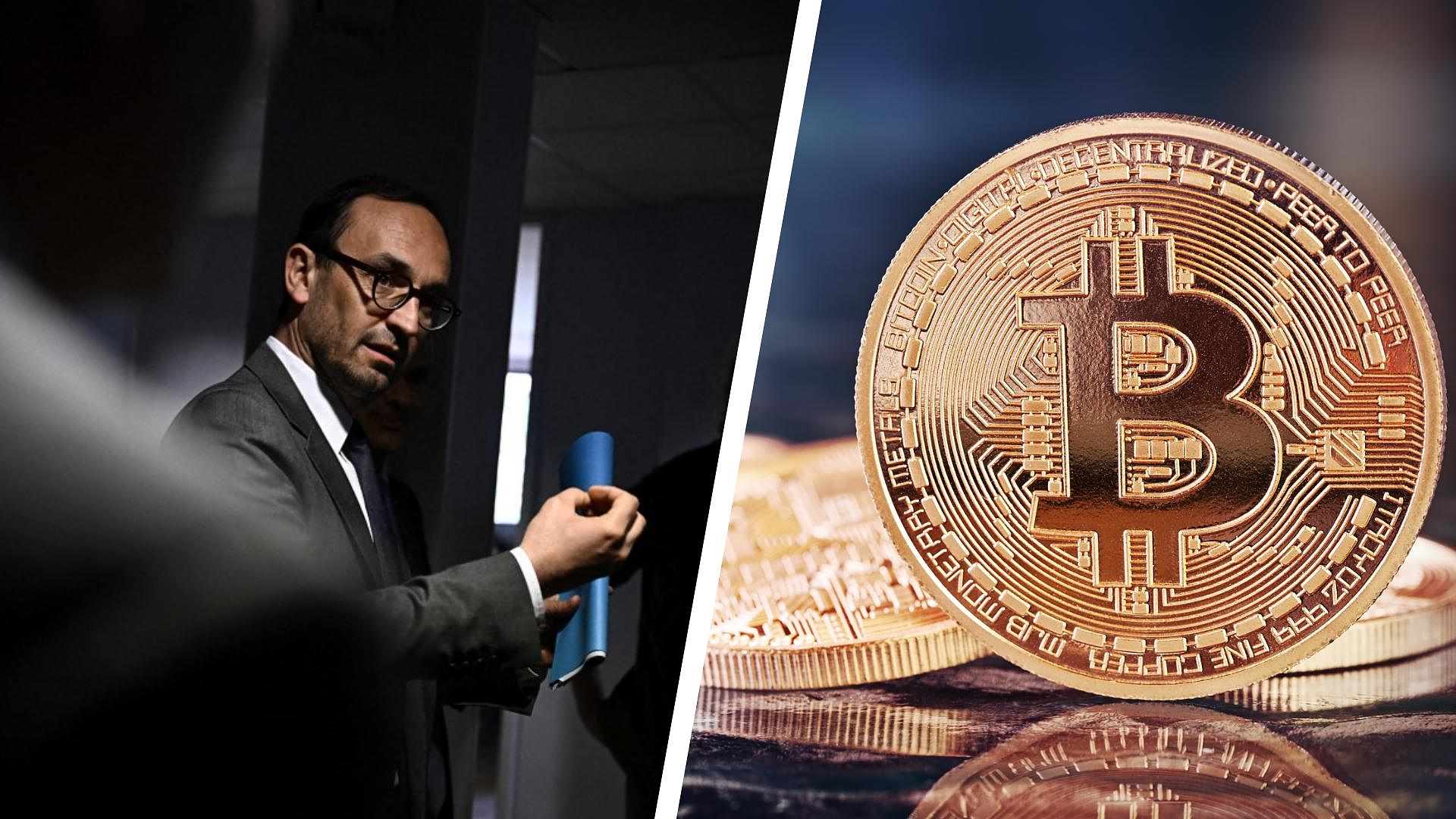It's clear. The Minister of the Economy Bruno Le Maire repeated on Tuesday that the government would not increase taxes, an option which divides the majority after the announcement of a slippage in the public deficit in 2023. “We will not increase taxes. taxes in France, for a simple reason: it would be contrary to our national interest,” he says in an article published in the economic daily Les Échos. Bruno Le Maire thus refuses the use of any “exceptional tax, surcharge, temporary tax or yield tax”, explicitly targeting the tax on superprofits defended by part of the opposition and the majority, on which Prime Minister Gabriel Attal had declared “not to have dogma”.
“I refuse to give in to the customary ease of difficult times,” insists Bruno Le Maire, arguing that it would not be fair to increase taxes, including on the richest, “in a country where 10% of taxpayers pay taxes. three-quarters of the income tax. “Do we really want to worry households, by suggesting that there could be the slightest tax increase? This would be economically stupid in a country where the savings rate - at 18% - is already one of the highest of all developed countries.
Also read: Budget deficit: questions about Bercy’s lack of foresight
However, “we are prepared to toughen the contribution on the income of energy companies, whose performance was too low in 2023,” reaffirms the minister. “With the Prime Minister, we want to fight against all rents,” he said. The Minister of the Economy denies protecting the wealthiest, claiming to have already “implemented the tax on digital giants, which are among the richest companies in the world”, as well as “the global minimum tax, which will make it possible to tax large multinationals at least 15%.”
The public deficit reached 5.5% of GDP in 2023, well above the 4.9% expected by the government, a slippage that the latter attributes to lower revenues than expected. Public revenues increased by only 2% in 2023 after 7.4% in 2022. Taxes alone (before deduction of tax credits) were even “almost at a standstill”, according to INSEE, increasing by 0.3% after 7.9% in 2022.
Enough to encourage some, like the President of the National Assembly Yaël Braun-Pivet (Renaissance), to advocate an increase in taxes on super profits or super dividends. Prime Minister Gabriel Attal announced Tuesday the establishment of a working group to come up with proposals “by June” to tax “rents”. Last Tuesday, Bruno Le Maire had already assured of his “intact” and “total” determination to bring the French public deficit below 3% in 2027, without increasing taxes.

 What is chloropicrin, the chemical agent that Washington accuses Moscow of using in Ukraine?
What is chloropicrin, the chemical agent that Washington accuses Moscow of using in Ukraine? Poland, big winner of European enlargement
Poland, big winner of European enlargement In Israel, step-by-step negotiations for a ceasefire in the Gaza Strip
In Israel, step-by-step negotiations for a ceasefire in the Gaza Strip BBVA ADRs fall almost 2% on Wall Street
BBVA ADRs fall almost 2% on Wall Street Breast cancer: less than one in two French women follow screening recommendations
Breast cancer: less than one in two French women follow screening recommendations “Dazzling” symptoms, 5,000 deaths per year, non-existent vaccine... What is Lassa fever, a case of which has been identified in Île-de-France?
“Dazzling” symptoms, 5,000 deaths per year, non-existent vaccine... What is Lassa fever, a case of which has been identified in Île-de-France? Sánchez cancels his agenda and considers resigning: "I need to stop and reflect"
Sánchez cancels his agenda and considers resigning: "I need to stop and reflect" The Federal Committee of the PSOE interrupts the event to take to the streets with the militants
The Federal Committee of the PSOE interrupts the event to take to the streets with the militants The growth gap between Europe and the United States will narrow in 2025
The growth gap between Europe and the United States will narrow in 2025 A report recommends the creation of a “riot fund” to cover communities
A report recommends the creation of a “riot fund” to cover communities With 3.5 billion euros collected, life insurance recorded its best month in 10 years in March
With 3.5 billion euros collected, life insurance recorded its best month in 10 years in March Volvic factory shut down after “an act of malicious intent”: production can resume “at the earliest” on Friday
Volvic factory shut down after “an act of malicious intent”: production can resume “at the earliest” on Friday Jean Reno publishes his first novel Emma on May 16
Jean Reno publishes his first novel Emma on May 16 Cannes Film Festival: Meryl Streep awarded an honorary Palme d’Or
Cannes Film Festival: Meryl Streep awarded an honorary Palme d’Or With A Little Something Extra, Artus and his disabled actors do better than Intouchable on the first day
With A Little Something Extra, Artus and his disabled actors do better than Intouchable on the first day Madonna ends her world tour with a giant - and free - concert in Copacabana
Madonna ends her world tour with a giant - and free - concert in Copacabana Omoda 7, another Chinese car that could be manufactured in Spain
Omoda 7, another Chinese car that could be manufactured in Spain BYD chooses CA Auto Bank as financial partner in Spain
BYD chooses CA Auto Bank as financial partner in Spain Tesla and Baidu sign key agreement to boost development of autonomous driving
Tesla and Baidu sign key agreement to boost development of autonomous driving Skoda Kodiaq 2024: a 'beast' plug-in hybrid SUV
Skoda Kodiaq 2024: a 'beast' plug-in hybrid SUV The home mortgage firm rises 3.8% in February and the average interest moderates to 3.33%
The home mortgage firm rises 3.8% in February and the average interest moderates to 3.33% This is how housing prices have changed in Spain in the last decade
This is how housing prices have changed in Spain in the last decade The home mortgage firm drops 10% in January and interest soars to 3.46%
The home mortgage firm drops 10% in January and interest soars to 3.46% The jewel of the Rocío de Nagüeles urbanization: a dream villa in Marbella
The jewel of the Rocío de Nagüeles urbanization: a dream villa in Marbella Europeans: a senior official on the National Rally list
Europeans: a senior official on the National Rally list Blockade of Sciences Po: the right denounces a “drift”, the government charges the rebels
Blockade of Sciences Po: the right denounces a “drift”, the government charges the rebels Even on a mission for NATO, the Charles-de-Gaulle remains under French control, Lecornu responds to Mélenchon
Even on a mission for NATO, the Charles-de-Gaulle remains under French control, Lecornu responds to Mélenchon “Deadly Europe”, “economic decline”, immigration… What to remember from Emmanuel Macron’s speech at the Sorbonne
“Deadly Europe”, “economic decline”, immigration… What to remember from Emmanuel Macron’s speech at the Sorbonne These French cities that will boycott the World Cup in Qatar
These French cities that will boycott the World Cup in Qatar NBA: the Pacers and the Knicks will be there in the play-off semi-finals
NBA: the Pacers and the Knicks will be there in the play-off semi-finals Tennis: like last year, Sabalenka joins Swiatek in the final in Madrid
Tennis: like last year, Sabalenka joins Swiatek in the final in Madrid OM: scorer against Bergamo, Mbemba moved after the final whistle
OM: scorer against Bergamo, Mbemba moved after the final whistle OM-Atalanta: the lines of the match
OM-Atalanta: the lines of the match


















